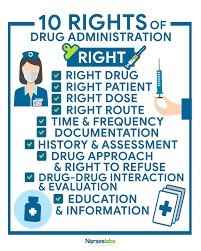A nurse is planning care for a client who is receiving chemotherapy and has neutropenia.
Which of the following interventions should the nurse include in the plan?
Avoid including raw fruits in the client's diet.
Restrict visits from young children to 2 hr per day.
Measure the client's temperature once per shift.
Use disposable gloves from a box outside the client's room.
The Correct Answer is A
- A. The nurse should discourage raw fruits due to risk of infection.
- B. There is no standard recommendation against exposure to young children.
- C. Incorrect. The nurse should measure the client's temperature at least every 4 hr, or more frequently if indicated because fever is a sign of infection in a client who has neutropenia and requires prompt intervention.
- D. Incorrect. The nurse should use disposable gloves from a box inside the client's room, not outside, to prevent cross-contamination and protect the client from exposure to pathogens.
Nursing Test Bank
Naxlex Comprehensive Predictor Exams
Related Questions
Correct Answer is B
Explanation
A is incorrect because the completion of the incident report should not be documented in the client's medical record, but in a separate file for quality improvement purposes.
B is correct because the time the medication was given is an essential fact related to the incident that should be documented in the client's medical record.
C is incorrect because the reason for the medication error should not be documented in the client's medical record, but in the incident report for analysis and prevention of future errors.
D is incorrect because the notification of the pharmacist should not be documented in the client's medical record, but in the incident report for follow-up and corrective actions.

Correct Answer is D
Explanation
- A. This choice is incorrect because verapamil and TPN do not have a significant food and medication interaction. Verapamil is a calcium channel blocker that can lower blood pressure and heart rate, while TPN is a form of intravenous nutrition that provides calories, electrolytes, vitamins, and minerals. The nurse should monitor the client's vital signs and blood glucose levels, but there is no need to intervene to prevent an interaction.
- B. This choice is incorrect because phenytoin and milkshakes do not have a significant food and medication interaction. Phenytoin is an anticonvulsant that can decrease the absorption of some vitamins, such as folic acid and vitamin D, but milkshakes are not a major source of these nutrients. The nurse should encourage the client to eat a balanced diet and take supplements as prescribed, but there is no need to intervene to prevent an interaction.
- C. This choice is incorrect because potassium-rich foods and furosemide do not have a significant food and medication interaction. Furosemide is a loop diuretic that can cause hypokalemia, or low potassium levels, but potassium-rich foods can help prevent this complication. The nurse should monitor the client's electrolyte levels and fluid balance, but there is no need to intervene to prevent an interaction.
- D. This choice is correct because MAOIs and cheeseburgers have a significant food and medication interaction. MAOIs are antidepressants that can cause hypertensive crisis, or dangerously high blood pressure, if the client consumes foods that contain tyramine, such as aged cheeses, cured meats, fermented foods, and beer. The nurse should intervene to prevent the client from eating a cheeseburger and educate the client about avoiding tyramine-containing foods while taking MAOIs.
Whether you are a student looking to ace your exams or a practicing nurse seeking to enhance your expertise , our nursing education contents will empower you with the confidence and competence to make a difference in the lives of patients and become a respected leader in the healthcare field.
Visit Naxlex, invest in your future and unlock endless possibilities with our unparalleled nursing education contents today
Report Wrong Answer on the Current Question
Do you disagree with the answer? If yes, what is your expected answer? Explain.
Kindly be descriptive with the issue you are facing.
